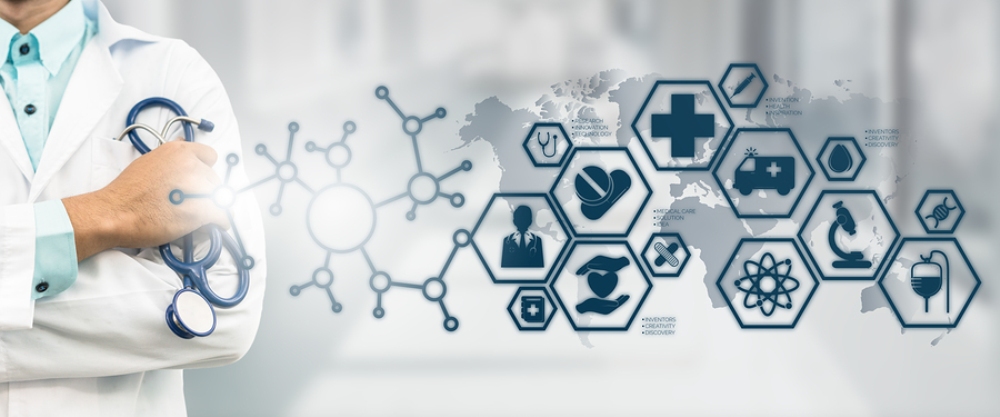
Technological innovations offer a lot of advancements in the healthcare field, especially as we are looking for more personalized and effective treatments. From artificial intelligence technology to virtual reality technology and many other technologies are finding their application in the healthcare sector. In this article, we will provide an overview of some of the most important tech trends and how they shape this sector.
Virtual Reality
Virtual reality technology is associated with the gaming sector, and for a good reason. There are actually a lot of VR games, and VR headsets have definitely progressed over the years. Moreover, the online casino sector has also implemented VR technology in order to provide an authentic and realistic gambling experience to the user.
The developers from this sector have created a VR version of their most popular casino games, mainly slots, and by doing they create an interactive VR experience. Otherwise, there are many online casinos where you can play your favorite casino games without a headset. For example, on the reputable site Spinsify, you will find honest and detailed information about the new casino sites, their promotions, welcome bonuses, gaming section, and more.
But today, Virtual Reality technology can become an essential component of the training of medical students. In fact, it is a great way to simulate a specific procedure and to help medical students gain relevant skills and practice. It can also increase the quality of telehealth.
However, the real advantage of using virtual reality technology is for the patient. There have been cases where VR technology was used to help patients that had a stroke overcome motor deficiencies. Otherwise, it was also used for the treatment of patients that suffered from dementia and patients that had post-traumatic disorders. Of course, with the progress of virtual reality technology, we expect in the future for greater usage of VR solutions in the healthcare sector.
Blockchain Technology
There are many benefits associated with this technology. But mainly, the advantages of blockchain technology are related to the security it offers. The blockchain network is a public distributed ledger of transactions, and in this case, it can be considered as a decentralized database that is highly secure and tamper-proof. In the healthcare industry, the data is very sensitive about the patients, and the distribution of the data isn't risk-free.
So, the implementation of blockchain-based solutions in the healthcare sector will definitely enhance data security and allow more transparency in this field. Also, blockchain-based solutions are great for the pharmacy industry because they offer real-time information about the status of each product and will definitely help with the communication of the relevant parties in the supply chain, while simultaneously it will reduce the workload and the costs associated with the distribution of drugs.
One example is IBM that has partnered with Boehringer Ingelheim to use blockchain technology for clinical trial settings. In addition, IBM Watson Health is another project based on blockchain technology with the purpose of building small smart healthcare solutions.
Personalization
As we mentioned clear, the goal is to create a so-called precision medicine that is based on the individual behavior of the patient, their lifestyle, physical condition, mental health, and other factors which impact his or her health. So, the three are a lot of health care smart devices that are able to collect data in real-time about the physical condition of the individual. For example, wearables like smartwatches can track the stress level of the individual, sleep patterns, and heart rate. The main disadvantage is that smart wearables come in different formats, and their results may vary as well as their features.
So, there is a real need for this type of data to be accessed from one device or app that will allow medical professionals to have a better understanding of the physical and mental state of the patient and offer a more accurate diagnosis based on the accumulated data about the patient. One example is the company Doxee which operates in the personalized customer care management field.
Artificial Intelligence and Machine Learning Technology
The subset of AI technology, machine learning is a great solution to analyze large data sets, develop relevant insights based on the patterns of the data, and even predict the future behavior of the patients. Machine learning technology, on the other hand, is one of the most important components of achieving customized medical solutions and treatment.
One example is a partnership between the Harvard University and MIT which used machine learning to track the trends of the mental health sector by analyzing messages on topics related to mental health on the social media site Reddit.
Another example is an AI-powered chatbot which was used to assist doctors with their diagnosis, and it also helped patients make specific assessments of their health based on their interaction with the chatbot.
Mobile Apps
The result of the advancement of mobile technology were mobile apps that help users track their mental and physical condition. There are apps that help users count their calories, track their water intake, sleep patterns, menstruation cycles, and many other more advanced apps that can be synced with smart wearable technology.
This will help the user gain a better understanding of their condition over time, and it will also prompt the users to take control of their health, develop better habits, and can also help them spot any problems early on, which is beneficial for anyone.